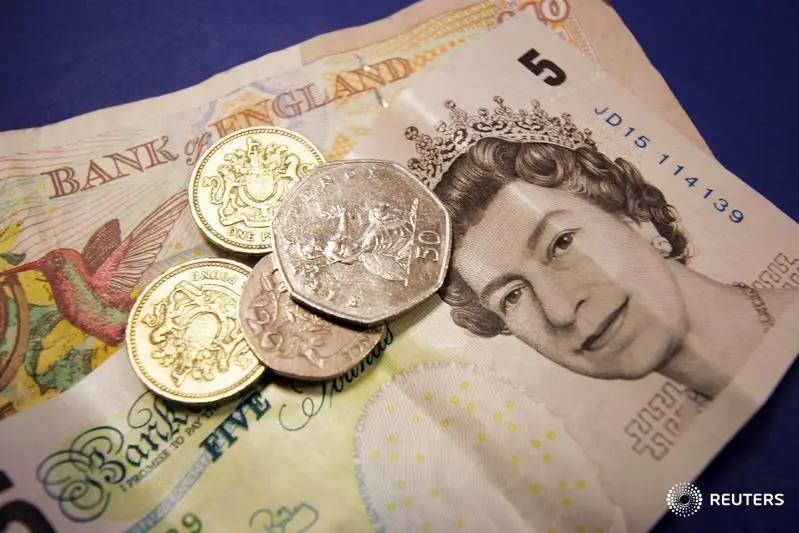PHOTO
Sterling rose against the dollar on Friday but was still set for its sharpest monthly drop since October 2016, while edging higher against the euro.
The dollar dropped from its recent 20-year high while still on track for its best month since 2015, bolstered by a combination of expectations for U.S. rate hikes and growth concerns in China and Europe.
Investors' focus remained on monetary tightening ahead of next week's policy meeting of the Bank of England, which might cave in to the dovish minority, further weakening the pound.
The British public's expectations for inflation have fallen after rising for several months, according to a survey that the Bank of England keeps track of as it considers how fast it needs to keep raising interest rates.
"Sterling has always been a risk-on risk-off currency, and the reason is that Britain has a substantial current account deficit, which gives the currency its high beta status," Kamal Sharma, G10 FX strategist at BofA, said.
"But I think that in the next couple of weeks, the Bank of England, which has been downbeat recently, will be the main investors’focus."
Money markets are still pricing in around 145 basis points of further BoE tightening by the end of the year.
Some analysts argued that risk appetite more than monetary divergence would drive the British currency in the near future.
"It looks as though sterling is being traded more on growth prospects," ING analysts said in a research note.
The pound was up 0.8% against the dollar at $1.2559, after hitting $1.2412 on Thursday, its lowest level since July 2020. It was set for its biggest monthly drop since October 2016 - soon after Britain's vote to exit the European Union - after falling more than 4.5% in April.
Euro zone inflation inched up to a new record high as expected this month.
The pound was up 0.3% against the single currency at 84.03 pence.
"The problem is that the British economy is facing several supply-chain shocks, some of which are in common with the rest of the world, but there's one which is unique, namely Brexit," Shanna argued, adding BofA is bearish on the pound.
Brexit headlines might return to the spotlight of pound investors as Britain and the European Union are at an impasse over changes to parts of the deal governing trade with Northern Ireland, Britain's Europe minister James Cleverly told a parliamentary committee on Thursday.
(Reporting by Stefano Rebaudo, editing by Mark Heinrich)





















